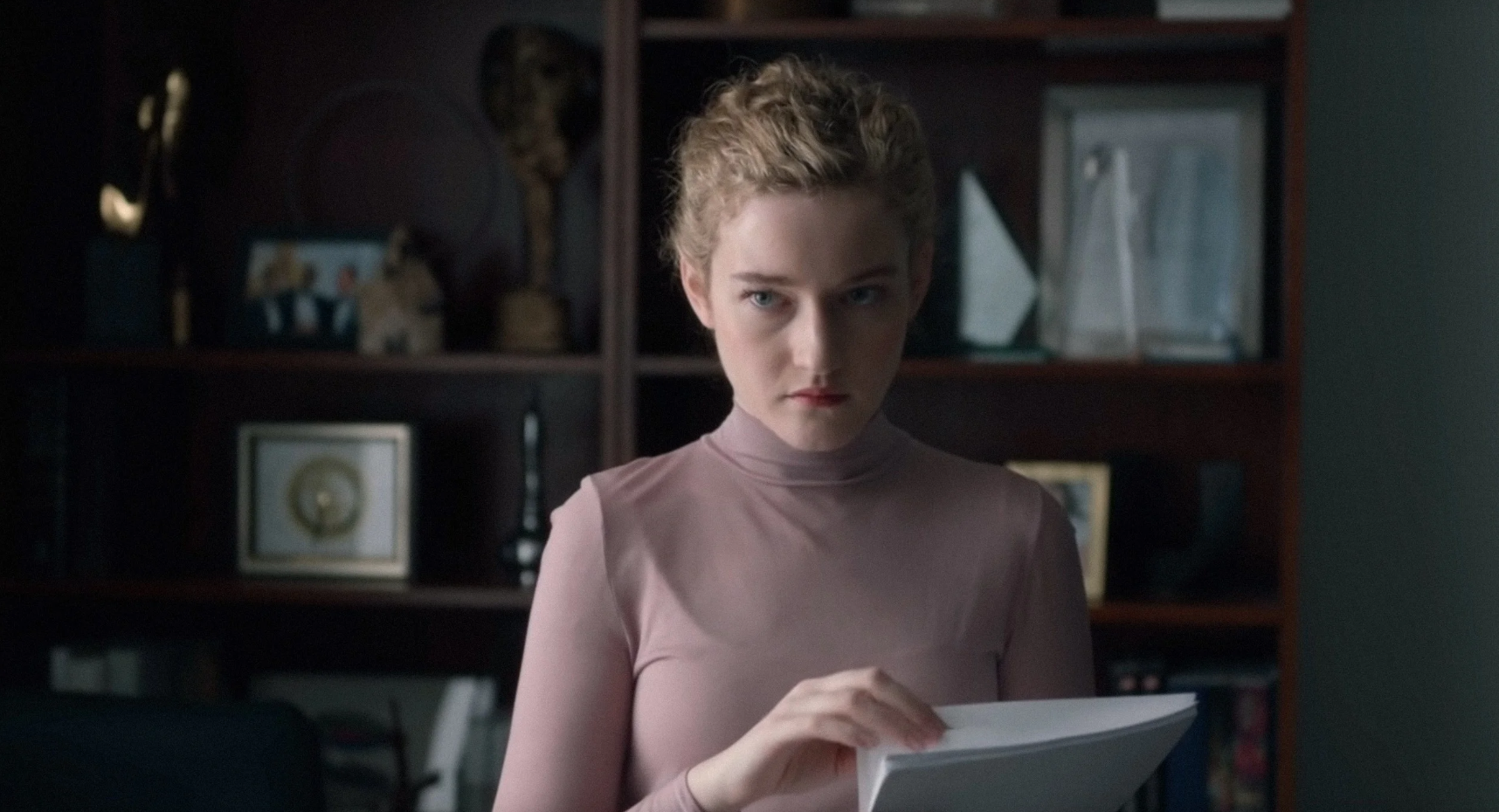The new film The Assistant has instigated a breakthrough in the public conversation about sexual abuse and harassment in the workplace. Rave reviews in the mainstream media, including The New Times, the New Yorker, the Daily Beast and Time Out, have followed filmmaker Kitty Green’s shift of genre and analysis away from sensationalized accusations and the pursuit of punishment of individuals and toward an illumination of the everyday, mundane life of power at work.
The film follows a day in the life of Jane, a production assistant at a media corporation. Based on extensive research in the film industry, the depiction of Jane’s day has a documentary feel that has been described by the filmmaker as “scripted non-fiction.” Julia Garner enacts this script with impressive psychic and motor precision as she goes about her duties of answering phones, making photo copies, ordering lunch, cleaning up, and managing interpersonal conflicts and scenes of personal humiliation at work on a gray, decidedly unglamorous set. The daily grind reveals, with grim repetition, the brutal but mundane hierarchies of the workplace. At the bottom of this hierarchy, Jane must defer, ingratiate herself, and grin and bear patronizing “help” and imperious verbal abuse from bosses, coworkers, and others with business or personal ties to the company.
Green’s film clearly draws inspiration from Chantal Ackerman’s 1975 feminist classic, Jeanne Dielman. Green follows Ackerman in embedding her representation of specifically gendered forms of power within her depiction of ordinary, mostly tedious daily routines. While Ackerman focused on the domestic scene, Green illuminates the workplace. The Assistant begins its story of work in the grim tedium of the commute, then slowly builds its revelations into the details of routine tasks to create masterfully directed and acted scenes of muted suffering. The Assistant has much in common with Cruel Optimism, Lauren Berlant’s stunning study of the trauma of everyday life under neoliberalism; here a similarly tight focus on individual experience illuminates the contemporary autocratic workplace much more broadly.
The Assistant turns the focus of much mainstream representation of #MeToo dynamics away from scandal, sensationalism, and celebrity and toward the dynamics of power and powerlessness at work. The filmmaker embeds references to sexual predation within the overall work culture, keeping the Harvey Weinstein-like figure off screen and his particular actions obscure. As Jane begins to perceive the sexual exploitation exercised by her generally verbally abusive boss, she also discovers how the company obscures, excuses, and supports such behavior as one aspect of the power of employers and supervisors over employees. We are able to perceive this embeddedness in ways that cut against (a) representations of workplace hierarchies that ignore the existence or importance of sexual predation, and (b) representations that single out and sensationalize sexual abuse without attention to the broad inequalities that make it endemic.
Sexual predation in The Assistant appears as an open secret—something everyone knows is there, but no one acknowledges. Sexual exploitation of subordinates is a perk of other forms of power, and the forces that maintain the oligarchic structure of the capitalist workplace routinely obscure this reality. The film also quietly shows the operations of gender and racial inequality in the age of corporate “diversity”—women and people of color are sprinkled into the hierarchy in ways that do not fundamentally alter prevailing forms of domination and exclusion.
There is one scene in the film that resonates especially powerfully for anyone who has tried to bring a grievance to a corporate Human Resources bureaucrat, Title IX officer on campus, or other functionary tasked with protecting the institution rather than the unwary complainant. Jane takes her alarm at her boss’s apparent exploitation of a new young woman employee to an HR officer, brilliantly portrayed by Matthew Macfadyen (Tom Wambsgans in the television series Succession). The skill with which the mission of HR is pursued, through expressed empathy and concern for the employee, is breathtakingly portrayed—a punch in the face performed as a gentle caress. The layers of power performed in this scene constitute the slowly consolidating education of Jane.
The proliferating reviews of The Assistant demonstrate the effectiveness of Green’s strategies, as, one after the other, reviewers follow the director’s lead in a turn away from the scandal-obsessed or more melodramatic narratives of individual villainy and heroic exposure in films like Bombshell or TV series like Morning Show. Broader power dynamics are discernible in those productions too, but they are largely overwhelmed by the celebrity-centric, naming-and-blaming narrative structures. The public conversation galvanized by the wide reception of The Assistant can help expand the parameters of a conversation that has been developing outside mainstream, commercial media. An increasing focus by alternative press journalists, activists, and scholars on the sexual predation endemic to the hierarchical, autocratic workplace is being further extended to an examination of prisons, detentions centers, domestic labor, migrant worker camps, and refugee centers.
This shift and expansion of focus is absolutely necessary if we are to turn away from lazy gendered melodramas of male villainy and female victimization—a melodrama that badly misfires when we consider the history of racial lynching, for instance—or its reverse version of female fabricators and wrongly accused men. The reality of endemic sexual predation is not a binary melodrama, as The Assistant so masterfully illuminates. Sexual predation is embedded within the larger structures of power that govern our daily lives under relations of gendered neoliberal racial capitalism. But the devil, as this film so clearly demonstrates, is in the details.


